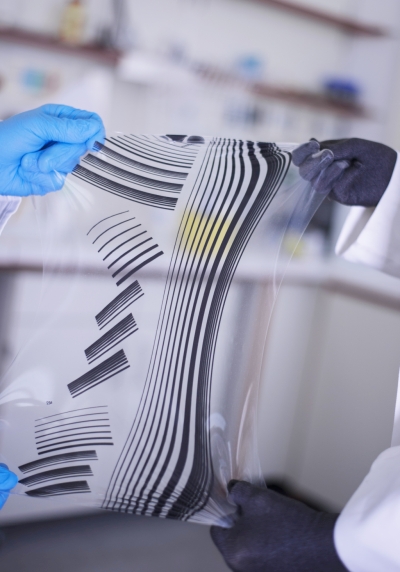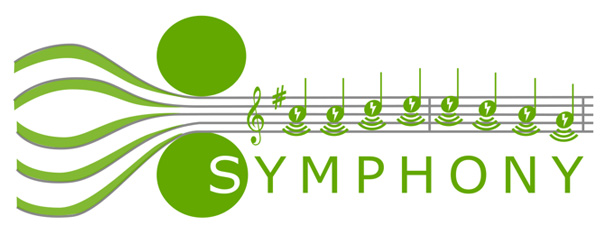
Stretchable printed conductors
by Fraunhofer ISC
Comments or questions?
Please contact Michèle Isopp, the Dissemination Manager:
[psfb id=“921″ title=“Kontaktformular“]
The H2020 European research project SYMPHONY (Smart Hybrid Multimodal Printed Harvesting of Energy), coordinated by Joanneum Research, has started on 1st May 2020. The SYMPHONY project will deliver an energy supply platform for the powering of wireless sensor nodes for monitoring remote or difficult-to-access locations.
The kick-off meeting of the SYMPHONY project has been organized remotely on 13-14 May 2020. During the meeting, with the participation of the EC Project Officer Achilleas Stalios, the SYMPHONY partners, comprising 13 top EU innovation performers (researchers and companies) from 4 European countries, have discussed possible solutions to the following challenges:
- How to ensure reliable and autonomous power supply for condition monitoring in remote locations, using dislocated and disordered energy sources?
- How to avoid the use of batteries (and their potentially hazardous waste), rare elements and heavy metals ?
- How to make sure that the developed devices can be produced using a low-cost and scalable printing and structuring process?
- How to drastically reduce CO2 emissions, calculated through a Life Cycle Analysis, in 3 application cases: condition monitoring in wind turbine, energy efficient room heating/cooling and tube pressure control in e-bicycle?
The SYMPHONY project is addressing all these challenges with the development of an innovative energy autonomous sensor system (EAS) comprising an energy supply platform (ESP) based on printable, recyclable, lead-free materials i.e. ferroelectric polymer P(VDF-TrFE), flexible energy storage devices and rectifiers not using rare elements or heavy metals and combined with transducers and energy-efficient electronics for power management. The hybrid integration of these devices on flexible films (based on low-cost and scalable printing and structuring processes) with low power harvesting Integrated Circuits will result in a specific cost below 1€/mW.
Within the next 4 years, the SYMPHONY solution will reduce CO2 emissions by 50% increasing the lifetime of wind turbines, making room heating/cooling 20% more efficient, through presence and motion tracking smart floors and decreasing by 20% the energy consumption in e-bikes, through remote tube pressure control. Moreover, the printed technology developed in the project can be integrated cost effectively in stretchable and flexible devices, representing a huge potential for usage in a wide range of further IoT-supported applications.
